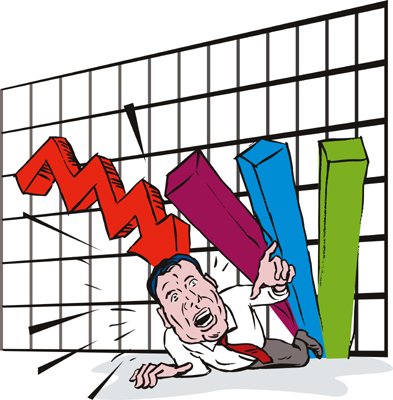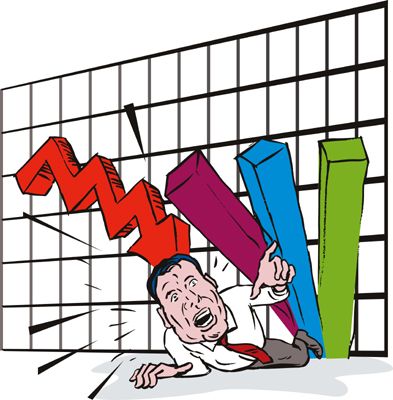HOW TO TURNAROUND A COMPANY FACING FINANCIAL PERIL
Published by Gbaf News
Posted on July 22, 2014
4 min readLast updated: January 22, 2026

Published by Gbaf News
Posted on July 22, 2014
4 min readLast updated: January 22, 2026

The pressures involved in facing up to an unsustainable financial scenario are very testing indeed, even for the most experienced and battle-hardened of businessmen and women.
Here are five action points designed to offer some guidance to directors faced with the prospect of seeing their company go out of business.
1 – Assess the situation
When a company’s cash flow problems start to snowball and debts begin to really mount up, a director’s job becomes increasingly challenging but it is in these moments that it pays to keep a cool head and assess the situation as thoroughly and objectively as possible.
There is nothing to be gained either from panicking and potentially unsettling staff or colleagues; or from hoping the problems might simply disappear on their own. What is required to turnaround a company is the full cooperation of the relevant parties in charge of directing its affairs and a clear view on the situation as it stands.
2 – Consider the restructuring options
 A company that is financially distressed, whatever the cause, cannot afford to simply carry on operating as if nothing fundamental needs to change. Restructuring plans are designed precisely to provide a blueprint for making positive progress through careful planning and effective debt management.
A company that is financially distressed, whatever the cause, cannot afford to simply carry on operating as if nothing fundamental needs to change. Restructuring plans are designed precisely to provide a blueprint for making positive progress through careful planning and effective debt management.
3 – Liquidate non-essential assets
When financial distress is intensifying and the prospect of going out of business is becoming ever-more real, directors can help fend off collapse by liquidating any assets that the company holds. Even if these measures only succeed in buying more time for directors to plan a broader recovery, they will have served a valuable and potentially crucial purpose.
4 – End all unnecessary relationships
Terminating non-essential relationships with suppliers or with employees is an unfortunate but necessary part of any corporate recovery process. Deciding which relationships are essential and which are not can be difficult but there is no room for sentiment when a company is facing collapse. Directors must be prepared to make tough choices and to do whatever is possible and necessary to secure the longer term future and potential prosperity of their organisation.
5 – Consider the alternative finance options
If the fundamental attributes of a company can be kept in place and when financial distress is being caused primarily by cash flow problems, directors should aim to find sources of fresh funding wherever they can.
There is a growing variety of alternative finance propositions available to businesses in the UK and beyond, including, for example, invoice factoring/discounting, asset finance and bridging loans. It is crucial to understand what any such arrangement entails and to get advice where necessary but directors looking to turnaround an ailing company should at least consider all the finance options accessible to them in times of crisis.
6 – Investigate formal insolvency
There is an obligation for company directors to enter their companies into formal insolvency proceedings when they know that their debts problems are insurmountable. The precise nature of official insolvency proceedings can vary but they are always based on the idea that creditors deserve a chance to recover any money they are owed from a company in financial distress.
A company facing insolvency is also given every chance to structure repayment arrangements in ways that give them a fighting chance of recovery. Here again, it is very important for company directors to understand their options and to seek advice on how insolvency might impact their own and their company’s financial future.
7 – Salvage what you can where possible
Even when a company is forced out of business and its assets are stripped in order to pay creditors the money they’re owed, there remains some prospect of implementing a turnaround. The key is for the parties involved to be aware of how a situation is likely to play out and to arrange an agreement that allows company directors to acquire specified assets through personal funds. Although hardly an ideal situation, it can often be that a business might be able to rebirth with the help of assets or equipment salvaged from a company that has succumbed to its financial problems.
Corporate financial distress can seem like the end of the world but recovery is very often a realistic prospect, even from what might seem like an inescapably bleak set of circumstances. Navigating the details of a corporate recovery or rescue process however will generally require a good deal of expertise and specialist knowledge in a number of important and interrelated areas.
John Baird has been involved in personal insolvency and finance since the turn of the century and specialises in advising Scots in financial distress. He offers this support though the website Scotland Debt Solutions. You can also reach him here on Google+ https://plus.google.com/104645336054442510370/posts
Explore more articles in the Business category











